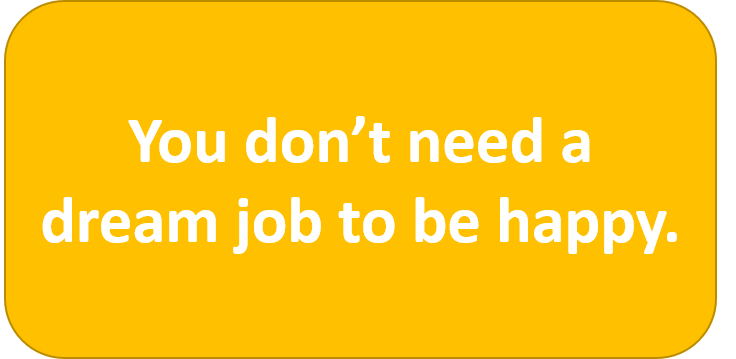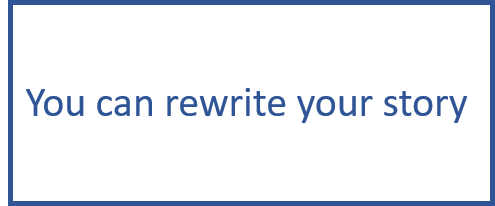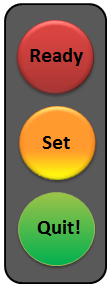Meaningful Work
There’s more than one way to be an independent worker
I refer to myself as a consultant, and think of it as an umbrella term for many types of independent work. I also don’t want to pigeon-hole myself into one type of arrangement because one of my favorite things about my career is the ability to work in many types of roles.
Some of those roles have been:
- An interim leader managing one line of a business while the employee was out on maternity leave.
- Project-based consulting, when I led a product or initiative through its launch, or developed a strategic plan for the full-time team to execute.
- Staff augmentation, when I performed many of the same responsibilities that a full-time employee would do for a team.
- Freelance writing and editing on a per-piece basis.
There are other terms as well, including fractional leaders and gig workers, that are sometimes used specifically, and other times are generalized to mean “independent”.
GigX is a company that provides a directory of independent workers to help organizations match with people who have the skills and experience they need. One of their members interviewed GigX’s Fractional Chief Business Development Officer about the nature of independent work. It’s a great look at this field: https://www.gigx.com/blog/insights-on-going-independent
Whether you’re an independent worker or are considering this type of work, or are hiring independent workers, I wish you success and satisfaction.
The unideal workplace
When I finally lost my idealism about work, I was embarrassed that it took so long.
In the early years of my career, I believed that the workplace would be a fair and rationale environment. When situations occasionally arose that led me to think, “that’s a waste of company money” or “it is unethical to treat people like that,” I was indignant.
It just seemed…wrong. And shocking, because it was the opposite of my worldview that people are mostly honest, hard-working and strive to do the right thing.
Over time, I realized that I had been extremely naïve. When I began noticing all the ways that workplaces enable bad behavior, I grew jaded.
It was many years later before I changed my beliefs again. My more pragmatic outlook these days is that while people don’t always act ethically, most organizations aren’t riddled with corruption.
I realize that it is human nature to prioritize self-interest. Sometimes the pressure of meeting deadlines or budgets or unrealistic expectations leads people to make choices that they wouldn’t have made if they felt like they had better options.
Even people at the highest levels of organizations who sometimes seem truly rotten can at least be understood, if not sympathized with. They may be driven to succeed at all costs because of insecurity or by a lack of empathy. They may be pressured by their stakeholders. Or maybe they just don’t have the capacity as a human being to treat other people with respect – and that’s sad.
It’s much less surprising or disappointing to me now when I see bad behavior. Instead of focusing on the wrongness of it, I try to widen my perspective to include the possibility that the people involved are doing the best they can with the circumstances they’re in. It’s not ideal, but it’s real.
Tiny steps to cope with a bad job

Earlier this week my yoga teacher asked the class to think about joy. Are we cultivating it in our lives? Our focus for the session was to infuse our practice with the feeling and expression of joy.
I’m someone who finds it easier to self-reflect than to generate the feeling of joy on-command. When asked to think about something joyful and remember how it feels, my first instinct is to think of beloved beings from my past. Namely, my grandmother and my cat Milo, neither of whom are still living – so then I feel sad.
My second instinct is to think of something wonderful that is present in my life. While I’m grateful that my current projects and personal connections generate much happiness, thinking about them in this context makes me feel a bit anxious. Because as with my grandmother and cat, I can’t help but imagine what it will be like when they’re gone.
I realized that if I want to intentionally create the feeling of happiness in a moment, I need to think about something with much lower stakes. Luckily the 2019 VMA awards just happened and the clip of Lizzo performing “Truth Hurts” and “Good as Hell” makes me smile and sing along every time (seriously…I watched it for the 20th time in 3 days and still shout “yeah!” with her at the end). Lizzo’s own video for “Truth Hurts” also makes me stop what I’m doing and dance every time I watch it.
Side note: If someone would make a mashup video of Lizzo’s “Boys” and Macklemore’s “Downtown” my life would be complete.

This experience made me think about how hard it can be to feel peace, let alone happiness, when work sucks. When you dread going to the worksite every day and come home exhausted, the negativity is overwhelming. It’s a weight that tends to stay with us even in our off hours.
It’s not easy to rise up out of the heavy feelings caused by a bad work situation but the secret is to make the tiniest effort. It is natural to focus on things that take larger amounts of time, energy and focus, like finding a new job and all the steps that go along with that…finding job listings, refreshing your LinkedIn profile, lining up references…
Landing a new job that’s a better fit is important to work towards, but it’s also important to cope in the meantime. Making sure there are moments of feeling happy and lighthearted can keep downward spirals away and reminds us that there is more to life than our jobs.
If you feel like you’re drowing in a negative work environment, try spending some time every day thinking about what little things still make you happy or are pleasurable. The tinier the better because it’s an entry point to get past feelings of anxiety, sadness, or overwhelm. Then don’t stop at the thoughts of something positive; feel it in your body, too.
Eating something you like for lunch? Awesome, enjoy what it tastes like. Focus on it. Make the most of the meal. Hot shower? It feels good to soak in the steamy air and get clean. Notice that. It doesn’t exactly feel “happy” as much as it feels relaxing and calming. That works just as well! Or like me, take 3 minutes to watch a video that makes you smile. Then you can ask yourself:
Your next job doesn’t have to be your forever job

If you feel stuck in a bad job it can be easy to lose sight of the bigger picture. You’re probably stressed, frustrated and tired. Your work conditions and how you feel can make it difficult to spend energy on anything but coping.
Wouldn’t it be nice if a letter came down your chimney containing a job offer that is perfectly suited to your interests and abilities and paid enough money that you didn’t have to worry about bills, like Harry Potter’s invitation to go to school at Hogwarts?
Many of us would be thrilled just to know what type of job would make us happy so we could start pursuing it. But if you’re depleted from your current job, you’re not in an ideal frame of mind to think of realistic possibilities. It is easier to dream about a job that you think you would love and ignore the part about needing to make a living wage and have healthcare benefits.
You don’t have to stay in your miserable job until you figure out what type of work is best for you. Your best course of action might be to just start looking for similar work somewhere else. Take your existing skills and experience and apply for jobs you’re qualified for.
Getting hired by a new employer may provide a boost of confidence along with a new setting and new coworkers. It’s a change that could give you a fresh perspective about what you like and don’t like about the work you’re doing. These insights will help you consider what it would take to have a job that makes you happy.
Your next job doesn’t have to be the perfect job that you want to stay in until you retire. It can be the next job on your journey to a fulfilling career.
It doesn’t have to be your dream job to be a great job

Some people feel called to a singular career. They are compelled to pursue their dream job, whether it is in the arts, sports, medicine or a niche role that the average person may never know exists.
Some of them will achieve the career success they’ve been striving for. Others might find that their passion becomes their side gig while they do something else to pay the bills.
For the rest of us? We may never have a dream job, but that doesn’t mean we won’t have satisfying careers and happy, full lives.
When I try to imagine what my dream job would be, I picture waking up in the morning full of excitement to get started on my work. After that…I draw a blank.
Granted, I’m not a morning person and it can take an hour and two cups of coffee before I feel like doing anything. But no matter what time of day, I don’t have a burning, persistent desire to do any one type of work.
And yet, I love my job.
My projects are varied and interesting. There’s always something new to learn. I like and respect the people I work with. I enjoy the flexibility of working from home. My earnings pay the bills.
I notice every day how grateful I am for the job that I have and the lifestyle it enables me to live. That includes having enough spare time to volunteer with organizations that I care about.
Volunteering gives me a mission-driven sense of fulfillment that is different from the gratification I feel when I successfully complete a work project. But if I won the lottery, I wouldn’t devote every day to my volunteer projects. I’m happy with the amount of time and energy that I’m spending in that area of my life. And I know from having tried it, that writing full-time doesn’t work for me either.
A large part of what makes my life feel full and satisfying is that I both love my career and its demands are manageable. It allows space for other meaningful pursuits.
It’s not my dream job, but it’s a great job.
If you’re worried that you’re running out of time to discover your passion and turn it into your job, I hope you realize that isn’t the only path to a fulfilling career.
Maybe you’re like me and you will find the most satisfaction by spending your time in several different fields – even if some of them are unpaid. The easiest way to discover this is by following your interests. Researching and talking to people who are involved in the fields you’re interested in are low-commitment ways of exploring what you might like. Learning what doesn’t work for you is useful information, too.
Another possibility is to start with the job you already have and see what can be improved. If you like your field but not your workplace, you can look for the same type of job at a different employer. If you’re bored, you can seek out new projects – maybe one of them will be the first step on a path to a new role.
You don’t need a dream job to be happy with your work.
Playing to our strengths

Yesterday a nonprofit that I volunteer with hosted their annual fundraising gala. I enjoy participating but I also feel a lot of stress around this event.
One issue is feeling bad for not procuring enough items for the silent auction. I didn’t procure any this year, agghh! Another is struggling to invite people to attend because I feel awkward asking. Fellow introverts: tell me you can relate!
Part of my guilt is that the agency asks board members to do these things and I hate failing to meet an expectation. This was bothering so much that I had to find a way to resolve it.
I decided to remind myself that I contribute in other ways by volunteering on a committee and spending time on other projects and programs every month. But I needed to reinforce this idea so that I fully believed it. There was still a part of me that thought “Yes you do those things, but you should also do more for the fundraiser.”
So, I shared how I was feeling with another volunteer while we were setting up the room in the morning. He said that he also has a hard time asking people for donations and that events aren’t his strong point. Then we spent a few minutes talking about a few volunteers who are very good at it: they have great event planning skills and enthusiastically seek out services and items for the auction. We are grateful for them and know how much the agency needs people like them.
But as we continued to talk, we agreed that the agency needs volunteers that offer varying strengths. We need people who are great at fundraising and events and we also need people who are good at policy, project management, public speaking, and skills that are core to the agency’s mission. We can’t all be good at everything, but we need everyone’s individual strengths to cover the components that are critical to the agency.
I’m sure I’ll continue to be nervous about helping with the gala. But I’m finally at peace with my contributions. Staying focused on my strengths is more helpful than using my available time and energy trying to be less bad at fundraising.
The same is true in our careers. Not everyone is good at talking to clients or tracking budgets or documenting processes. Making the most of our strongest abilities will have a bigger impact than being devoted to turning a weak skill into a mediocre skill.
5 Second Rule

The other day I was eating cake at my desk when I accidentally knocked the pan off the table. It landed frosting-side down on the carpet.
My first reaction was to panic in case the frosting had become smooshed into the carpet strands (it hadn’t). Then I laughed, calmly picked up crumb after crumb with my fingertips and got back to work.
I was glad I didn’t get frustrated about the mess and the time it took to clean up. I think my relief at not having to deep-clean a quarter inch of chocolate goop out of carpet fiber helped me relax and find the humor in it. But I also remember a flicker of a moment when I decided to think it was funny instead of a setback to my schedule.
Maybe the next time I have a setback with work, I’ll use that blink of time to lighten up, or steel myself, or to decide to shrug and let it go. Kind of like I did with the cake crumbs.
Work Karma
 It used to really bother me that leaders who abuse their authority often succeed in the workplace while ethical workers who perform their jobs well can easily be marginalized by those in power.
It used to really bother me that leaders who abuse their authority often succeed in the workplace while ethical workers who perform their jobs well can easily be marginalized by those in power.
I wanted work karma to punish bad managers and vindicate people whose careers were screwed over. I wanted fairness.
But most workplaces aren’t set up to reward good work and punish bad behavior. People-management systems reward those who please the people with power over their careers. Performance objectives such as cutting costs, launching successful products, or closing sales contracts matter more or less depending on who’s in charge.
Subjective, unwritten expectations have greater impact on individuals’ careers. Along with everyone else, leaders include their biases, perceptions, and fears when they make decisions about employees.
Have you ever had a manager who seemed to value everything you delivered? They had an assumption that you’re a strong worker and noticed every indicator that supported this idea.
Unfortunately, it also works the other way. If a manager dislikes you or decides you’re a poor performer, there’s not much you can do to change their opinion. There are plenty of ways to find fault in accomplishments when someone is determined to focus on the negative.
I’m still frustrated when good workers are mistreated and corrupt leaders get ahead, but I don’t dwell on it. I’d rather put my energy towards aligning my work with my values.


 I was stuck in stop-and-go traffic for almost hour this evening. I would rather have been home already, or at least driving at a steady speed, but wasn’t really annoyed. I was on the fastest route and there was nothing I could do to make traffic move more quickly.
I was stuck in stop-and-go traffic for almost hour this evening. I would rather have been home already, or at least driving at a steady speed, but wasn’t really annoyed. I was on the fastest route and there was nothing I could do to make traffic move more quickly.
Recent Comments